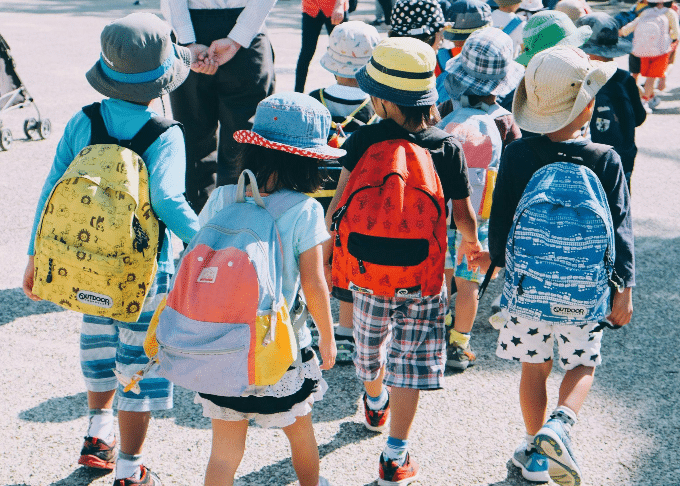The Asian education system is hailed globally for being among the best. The region leads in student performance indexes, graduation rates, discipline, mannerism, and general societal cohesion. However, these achievements have not come by chance. They’re a product of years of massive investments in the education system by all stakeholders. Parents have especially played a significant role in the growth and development of Asian schools. In this short article, we’ll show you the integral roles they’ve played to set the country, their children, and future generations for academic success.

Support System
A child’s most important support system is the home. Parents must make the home environment suitable for their children and those under their care. People applaud Asian parents for providing emotional support, encouragement, and guidance to their children to help them navigate the challenges of the education system and life in general. While parenting has no formula, all parents should strive to support and encourage their children when down, disappointed or demotivated. If it means being a pilot, a personal educator who can provide coursework writing help or to buy cheap essay online, act like it.
Primary educators
Even though there are many stereotypes about people of Asian origin, it’s undeniable that their parents play a crucial role in their early lives as their first teachers. They never relent nor give up. If you’ve had the privilege of growing up with Asian neighbors or friends, you’ll understand how firm their parents and guardians can be. They lay a solid foundation for the kid’s education, discipline at home as well as a desire to self-develop, writing and studying.
Growing up in the 1980s, we knew it was the Asian kids who would return home early, steer away from trouble, and help with home chores – things the rest of us hated. As they say, charity begins at home, and most Asian parents understand and hold dear to this belief. Their approach has made educators’ work much easier.
Role models
Children learn more from observation than from talking. As a parent, you should understand that you’re your child’s first hero and role model. As such, you should be their role model, helping mold them the way you want by being an exemplary example. Telling your kids never to drink when they see you come home drunk won’t work. Walk the talk and all will be fine. A study by Harvard university established that Asian parents expect strict adherence to their traditional values, making them have more influence in their children’s lives. To be a role model is to lead the way, influencing children’s attitudes towards learning and success.
Motivators
Have you watched the movie Akeelah and the Bee 2006? If you haven’t then you’re missing out. It’s one of the most wonderful acts by Laurence Fishburne, Keke Palmer, and Angela Bassett, among other wonderful casts. One of the most outstanding takeaways from the movie is how Mr. Chiu, an Asian parent, treats his boy, Dylan Chu. He set extremely high expectations on him, to the point of separating him from other kids so that he could focus on his education.
At one point, he was shown beating him up and warning to throw him out of the house if he was ever defeated by a girl in the spelling bee competition. While Mr. Chiu’s behavior doesn’t necessarily reflect that of other Asian parents, there is a general consensus that they do push their kids a little harder. They motivate and inspire them, sometimes using unconventional ways, and set high expectations that drive them to excel academically.
Partners in education
Learning is a combined effort. It requires the input of all stakeholders including parents, teachers, school boards, the government, and other regulatory agencies. If one interest group fails to meet its obligations, children’s education is negatively impacted. Parents are a solid pillar in the educational system. As such, they must collaborate with the other stakeholders to complete the system and make it work seamlessly. In many Asian countries, they actively collaborate with educators and schools to monitor their children’s progress, attend PTA meetings, and participate in school activities.
Resource providers
Education has become exceedingly expensive. Tuition alone is over USD 40,000 annually in many colleges. If you add the cost of learning materials, accommodation, transport, and meals, you end up with unimaginable figures that most parents can’t afford. Unsurprisingly, a growing number of parents are opting not to take their kids to colleges. But this isn’t the case amongst the Asian community where parents prioritize their children’s future above their own. This explains why they have the highest ratio of college educated individuals in the country.
Disciplinarians
It’s the responsibility of any parent to discipline their children. Most of us who grew up in the South can share stories of extreme punishments meted upon kids not only by their parents but other community members. Things truly have changed. Online videos of children abusing and beating their parents testify to it. But such cases are hardly seen among the Asian community. It’s obvious that the parents instill discipline and a strong work ethic in their children, making them grow up as responsible adults while setting them up for success in school.
Cultural guardians
The concept of “the face” is integral to Asian cultures. It dictates that every individual mustn’t behave in a manner likely to put their families in shame. This approach to life is preserved and transmitted from parents to their children over generations, keeping the community peaceful and focused. Such cultural values, traditions, and beliefs are often intertwined with the education system in Asian societies, making them excel beyond expectations.
